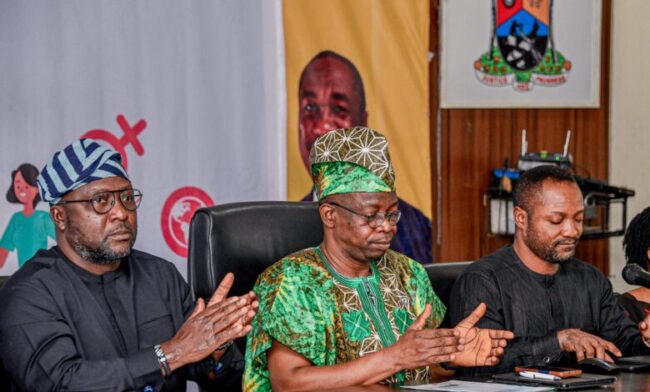Lagos State Government, through its Public Procurement Agency, has launched the Lagos State Gender Responsive Procurement Policy, saying that the policy is aimed at pioneering efforts to correct the long-standing imbalances that had marginalised women entrepreneurs from accessing public procurement opportunities.
Director General of the Lagos State Public Procurement Agency, Mr Fatai Idowu Onafowote, made this known on Friday at the Media Forum on the Lagos State Gender Responsive Procurement Policy, held at Ikeja, Lagos.
Onafowote said the policy shouldn’t be viewed as just a document but as a pioneering effort to correct the long-standing imbalances that had marginalised women entrepreneurs from accessing public procurement opportunities.
According to him, the policy is the state government’s commitment to dismantling those barriers and creating a more equitable and inclusive procurement environment, saying through capacity-building programs, financial incentives, educational resources, and mentorship opportunities, Governor Babajide Sanwo-Olu aimed “to enhance the abilities and market presence of women-owned businesses, ensuring they can compete effectively for public contracts.”
Speaking further, Onafowote stressed that equipping women with necessary skills and knowledge and providing access to procurement opportunities for them, among other critical issues, were considered in draughting the policy, adding, “By doing so, we are not only empowering women but also contributing to the broader socio-economic progress of Lagos State.”
“The benefits of this policy extend beyond the economic empowerment of women. By unlocking the potential of women entrepreneurs, we are driving broader economic growth and development within our state. This aligns perfectly with our commitment to social equity and inclusion, as well as with national and international frameworks, including the United Nations Sustainable Development Goals.”
“A critical element of this policy is the Executive Order mandating that all Ministries, Departments, and Agencies prioritise women-owned businesses in the awarding of contracts. This directive will ensure that at least 10 per cent of procurement opportunities are allocated to such enterprises, within financial thresholds suited for SMEs.
“This is not just a policy; it is a mandate for change—a mandate to improve the internal management of our state government and to foster a more inclusive economy.
“Today’s forum is a key part of our broader collaboration with UN Women, focused on affirmative procurement to empower women-owned and women-led businesses in Lagos State. I am confident that this forum will serve as a valuable platform to discuss and promote the objectives of this significant policy. I encourage all members of the press to engage actively in this dialogue, as your role in communicating these objectives to the public is crucial to our success,” he said.
Onafowote, however, acknowledged the support of the UN Women, the global leader in championing gender equality and the empowerment of women, saying that the historic initiative wouldn’t have been possible without their collaboration.
He added that their collaboration with the Lagos State Government had brought international best practices to the forefront of the policy-making process.
ALSO READ THESE TOP STORIES FROM NIGERIAN TRIBUNE
